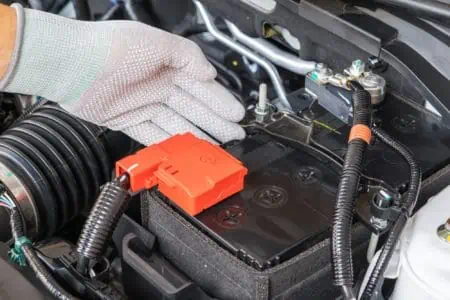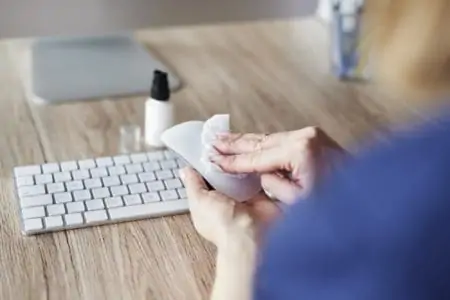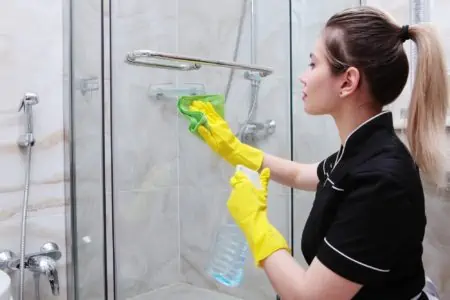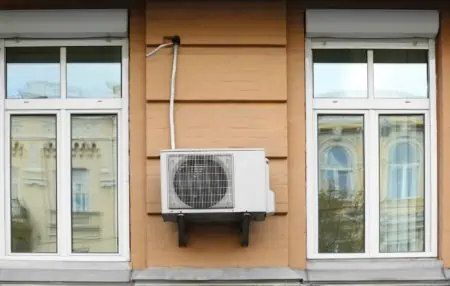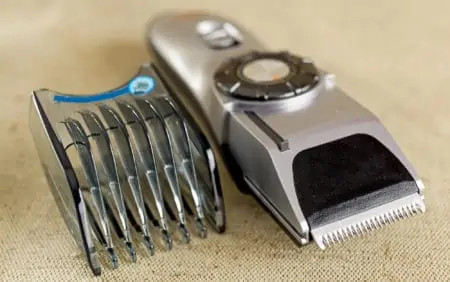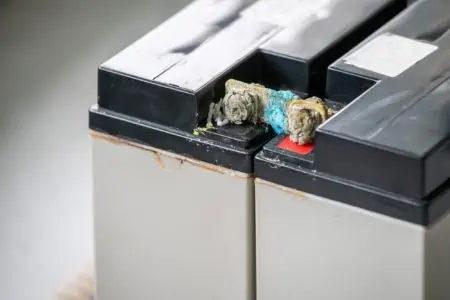You could have the cleanest, most sparkling house on the street and still be dealing with bad odors. If this is the case, you’re probably pulling your hair out, trying to figure out what to do.
Knowing how to get rid of a bad smell in a house can be challenging. First, you need to identify the odor source, and then you need to find the best method. Some smells are stubborn and tough to tackle.
But with our various methods, you’ll soon be able to remove all kinds of odors from any room. This includes musty, smoke, rotten egg smells, and much more. Keep reading for your ultimate guide to achieving an odor-free home.
Key Takeaways
- Identify the odor source and use natural remedies like baking soda and distilled white vinegar to remove bad smells.
- Musty smells are usually caused by mold, while rotten egg smells could indicate a gas leak or electrical problem.
- Regularly clean and maintain household items to prevent odors, such as washing pet belongings, cleaning the fridge, and vacuuming carpets.
- Open windows and doors to improve air circulation and use air purifiers or dehumidifiers when needed to maintain a fresh environment.
How To Identify the Source of the Odor
Sometimes, identifying an odor is as simple as sniffing around and figuring out where the stench begins. Often it might be from your microwave, sink, dishes, carpets, or sofas. But if you’re struggling to find the root of the odor, there are some other steps you can take.
If you have sniffed out a musty or sour smell, that’s usually caused by mold. Check the bathrooms, behind and under the sink, toilet, along floors and carpets, the walls, the fridge, the pantry, and the windowsills.
Perhaps you have a rotten egg smell. A natural gas leak or an electrical problem usually causes this. If you notice this, you must call your gas company to deal with a potential gas leak.
Sewage odors are usually caused by a dried-out P-trap (the curved pipe that blocks out odors). When this has no water in it, the sewer gases will rise up through the pipes and into your house.
Sea creatures might cause fishy-type smells, but in a house, it is usually an electrical or wiring problem. If this is the case, turn the power off at the breaker and call an electrician.
If you still can’t find the odor’s source, try to figure out what room it is in and call the respective professional. For instance, call a plumber if it’s in the laundry room or bathroom. If the smell is in a bedroom, it might be best to call a carpet specialist or joiner to see if they can find the source of the odor.
How To Remove Bad Smells From a Room Naturally
The good news is: you can remove general odors with natural household items. Here are the most effective natural odor eliminators:
- Baking soda: Leave bowls of baking soda in the affected room to absorb odors. We do this remedy often in our son’s nursery. Even though it’s clean, the lingering smells from diaper changes and poop explosions can be foul. The baking soda will absorb the odors in just a couple of days.
- Distilled white vinegar: Fill a spray bottle with distilled white vinegar, water, and a few drops of essential oil. Spray it all around the room as an air freshener. To absorb odors, you can also leave bowls of vinegar around, as you do with baking soda.
- Used coffee grounds: Before your coffee grounds go in the trash, put them to use. Place the coffee grounds in bowls and leave them in a few corners of the room. This works really well in closets and drawers.
- Mint and lime: If your whole kitchen smells bad, you can make a minty simmer on the stove. Slice two limes and add to a pot. Then add one teaspoon of vanilla extract and peppermint extract. Fill the pot ¾ full with water and bring to a simmer. Keep it simmering for as long as you want, letting the ingredients tackle the odors. You can pour the solution into an airtight container and refrigerate it for a few days before using it again.
How To Get Rid of Bad Smells in Your House
If the smells are worse than your average odors, we have specific instructions for removing the stench. As long as you’re sure you don’t have a dangerous gas or electrical issue, you can use the methods below.
Musty Smells
First, you must locate the source of the musty smell and eliminate it. Is it moldy bread? Mold on the windowsills? A blocked drain?
Once you have done that, air the room out, allowing fresh air in. Run a dehumidifier if possible. Dust the room well before vacuuming and mopping.
Deep clean the affected surfaces with the appropriate cleaner (for example, a bathroom cleaner for showers and toilets). If the odor is in the laundry room, deep clean the washing machine and drains.
Then mist the room and surfaces with a 1:1 solution of distilled white vinegar and water. The vinegar can help kill mold spores while deodorizing the space.
Smoke Smells
It’s important to know how to eliminate house odors, especially regarding smoke and tobacco. Whether it’s from previous owners, yourself, or guests you had over, here’s how to deal with smoke odors:
- Replace necessary items: If the odor is from previous tenants, replacing some furnishings like carpets or curtains might be necessary. The odors could be deep in the fibers; these are challenging to remove.
- Wash everything: Wash the walls and windows with a solution of one gallon of hot water, three tablespoons of dish soap, and ½ cup of baking soda. Scrub the walls and windows with a soft sponge to break up odors and stains. Be careful not to oversaturate the walls and paint.
- Dust: Dust the entire room.
- Clean the HVAC system: Get the HVAC system professionally cleaned. If you know how to do this yourself, give it a go.
- Vinegar: Place bowls of vinegar around the room, leaving them to absorb odors for a few days.
- Get an air purifier: Finally, you may need to set up an air purifier to suck all the odors out from the flooring, walls, and furnishings.
Call a professional restoration company if the above methods don’t work and the smoke smell is still an issue.
Top Tip
Don’t paint over walls if they stink of smoke. All this will do is trap the odors, and they will seep back out over time. Wash the walls thoroughly using the dish soap and baking soda method recommended above.
Pet Odors
We have had pets in the family for years. While they are cute and cuddly, they’re usually pretty stinky. Here’s how to remove bad smells in the house that they leave behind:
- Vacuum: Vacuum regularly with a HEPA vacuum — this will trap dander and bacteria, so it doesn’t spread back into the home.
- Wash their stuff: Regularly wash their bedding, blankets, toys, bowls, collars, leashes, and other soft areas where they rest.
- Give them a bath: We don’t know many pets that like a bath, but it’s crucial for removing odors from them and, therefore, your house.
- Baking soda: Leave baking soda around the room to absorb odors. Make sure this is out of reach from your pet!
- Spray vinegar: Combine a 1:1 vinegar and water solution and spritz it around the home. This acts as a pet-safe air freshener and can kill odors fast.
- Purify the air: It’s worth investing in an air purifier when you have pets, especially ones with long hair. One with a HEPA filter is best. If you can’t access an air purifier, charcoal bags are great at absorbing odors.
Rotten Egg Smell
Once you’re 100 percent sure that the rotten egg smell isn’t a danger to you, you can work on removing it yourself. When it’s not a danger, that’s usually because it’s an issue with the plumbing.
If it’s coming from the drain, ensure that there is water in the P-trap pipe. Simply run the tap, and you might notice a sudden improvement in the smell. If that doesn’t work, you can remove the P-trap and manually pour water into it.
Afterward, pour one liter of boiling water down the drain, followed by ½ cup of baking soda and ½ cup of distilled white vinegar. After a few minutes, pour another liter of boiling water. Flush with cold water.
This method also works for laundry machine drains.
Another method you can try is pouring a gallon of boiling water down your washing machine drain, followed by four ounces of mineral oil. This will slow evaporation, ensuring that the P-trap is full of water.
Finally, you might have an issue with the anode rod in your water tank. When this wears down, it can lead to a rotten egg smell. You will need to replace the anode rod.
Stale Smell
If you have stuffy air, this household odor is usually due to a lack of good air circulation. This means that other pollutants and chemicals in your home build up. This can be pollutants from candles, laundry detergent, surface sprays, air fresheners, and more.
The easiest solution is to open windows and doors and air out your home. If this doesn’t work, we recommend getting an air purifier for your home. Make sure to choose a high-quality option and replace the filters as often as recommended.
If you have an HVAC unit, ensure the filter is clean. If not, the air will circulate dirt and debris throughout your home.
Burning Rubber Smell
A burning rubber smell, often described as fishy, is a sign of an electrical problem. After turning the breaker off and calling an electrician, be 100 percent sure that the home is safe. You might have a lingering odor in the house after the situation. Here’s how to eliminate it:
- Open windows and doors: The quickest and most effective way to remove the burning rubber odor is to air out the home.
- Baking soda: Put bowls of baking soda around the home to absorb the odor.
- Vinegar: Put bowls of vinegar around the home to absorb the odor.
How To Get Rid of Odors by Room
Different rooms have different stenches. Bedroom odors are vastly different from kitchen odors. We’ll walk you through each area of your home, explaining how to eliminate house odors.
Kitchen Smells
Let’s look at each kitchen area and the best odor removal methods for various smells.
- Fridge: After cleaning the fridge and removing expired food, fill a bowl with one cup of baking soda. Add a few drops of essential oil if you’d like, and place the bowl in the fridge. Swap it out for fresh baking soda every day until the odor is gone.
- Trash can: Take your trash out every couple of days. Clean the inside of the can with all-purpose spray and a cloth before you put a new bag in. If odors are still a problem, sprinkle baking soda or kitty litter at the bottom of the can to absorb odors.
- Dishwasher: Clean the dishwasher filter with warm water and a brush. Fill a bowl with distilled white vinegar and place it in the dishwasher with no other items. Run the machine on the hottest setting. The vinegar and hot water will deep clean the machine while killing odors.
- Microwave: Combine four ounces of water with three tablespoons of distilled white vinegar. Heat for 90 seconds in the microwave. Let it stand for three minutes before wiping down the microwave interior. Leave the baking soda in a bowl in the microwave overnight to absorb excess odors.
- Garbage disposals and sinks: Flush the sink or garbage disposal with warm water. Add ½ cup of baking soda, followed by ½ cup of distilled white vinegar. Leave it in the drain for up to eight hours before flushing it with cold water.
Living Room Smells
Odors in your living room are usually lingering on the carpet and upholstery.
To deodorize a carpet, ensure you vacuum it well. Then sprinkle baking soda over the entire carpet. Leave it on overnight if possible.
In the morning, vacuum the carpet again. Just be careful with your specific vacuum, as many manufacturers advise against vacuuming up baking soda since it’s so fine.
If you can’t use the vacuum, combine a 1:1 solution of baking soda and white vinegar in a spray bottle. Spritz the carpet and let it air dry. As it does, it will neutralize odors.
To remove odors from upholstery, vacuum it well with an upholstery attachment. Air the couch by opening a window or bringing the couch outside on a dry day.
Then combine a 1:1 solution of water and distilled white vinegar. Spray it all over the couch and leave it to air dry. Make sure you don’t use this for couches with the “S” code — it is only safe for water-safe fabrics.
Bedroom Smells
We’ll walk through the main areas that become stinky and how to remove the odors:
- Drawers: If possible, empty the drawers, take them outside, open them, and let them air out. If you can’t do this, open a window and do it inside. Then spray the wood with a 1:1 solution of vinegar and water before wiping well with a microfiber cloth. Fill a few bowls with vinegar and place them inside the drawers to absorb excess odor.
- Closets: Remove dirty clothes and shoes. Fill a spray bottle with water and 25 drops of your favorite essential oil. Spritz the solution into the closet as an air freshener. Place baking soda in a few bowls and dot them around your closet.
- Mattress: Each time you change your sheets, vacuum your mattress to remove odors and dirt. Let the mattress air out for a few hours before you put fresh sheets back on. Use a sieve to sprinkle baking soda all over your mattress. Use a scrubbing brush to distribute this evenly. Leave this on for between one and 24 hours, giving the baking soda time to absorb odors. Use a vacuum to hover up the baking soda particles.
Laundry Room Smells
You’d think your laundry room would smell like fresh detergent and clean linen. But that’s not always the case.
- Washing machine: Remove debris from the rubber gasket and wipe it with a cloth soaked in distilled white vinegar. Remove and clean the detergent drawer with soapy water. Clean the laundry machine filter. Fill the detergent drawer with one cup of distilled white vinegar and set the cycle to a hot temperature. The vinegar will work to deep clean the drum and drain. Once the cycle has finished, leave the door open for the drum to air out.
- Tumble dryer: Clean out the lint filter and the air vents. Use your vacuum cleaner to get into the nooks and crannies. Spray a multi-purpose cleaner onto a cloth and wipe down the inside of the dryer, including the door. Spray distilled white vinegar onto a few towels. Place them in the machine and run a drying cycle — this will kill odors within the machine.
- Laundry hampers: Laundry hampers get smelly since they host dirty clothes. Every few weeks, dump out all the dirty clothes and spray the inside of the hamper with a multi-purpose spray. Wipe it down well. If you have a cloth hamper, wash them in the machine. You can put charcoal bags in the bottom of the hamper to neutralize odors.
- Set up a dehumidifier: Laundry rooms become humid and smelly. A dehumidifier can reduce humidity levels, combating bacteria, mold, and odors.
Bathroom Smells
On our journey of learning how to get rid of odors in a house, let’s finally tackle bathroom odors. You should clean your bathroom at least once a week to eliminate germs, bacteria, and stinky smells.
- Drains: Make sure you don’t have clogs in your sink or shower drain. If so, remove it with a plumber’s snake. Then pour a pot of boiling water down the drain, followed by one cup of baking soda. Let this sit for 10 minutes before adding one cup of distilled white vinegar. Wait 10 minutes before pouring another pot of boiling water down the drain. Run the faucet for five minutes to flush away any loosened gunk.
- Toilet: If your toilet is causing weird smells, even after cleaning it, add one cup of vinegar and one cup of baking soda to the tank. Use a toilet brush to scrub the tank. Leave for a few hours, scrub again, then flush the toilet.
- The air: Bad smells linger in the bathroom. While many people use commercial air fresheners, this tends just to mask the smell. Instead, make your own spray with a 1:1 solution of distilled white vinegar and water. Add 20 drops of essential oil and spritz the bathroom air daily to tackle odors.
Tips To Keep Your Home Smelling Fresh
Clutter and untidiness are expected, especially in family homes. But odors don’t have to be part of your life. Here’s how to keep your home fresh so that every guest feels comfortable at your house:
- Toss the trash: Ensure you take out the trash every few days.
- Clean out the fridge: Toss out old food and clean the fridge regularly.
- Flowers and plants: Plants can improve the air quality in your home, while flowers can add a lovely scent. We recommend peace lilies, orchids, English ivy, and snake plants to improve odors.
- Clean soft furnishings: Odors quickly build up in the fibers of soft furnishings. While it’s time-consuming to clean these areas, it’s super important for staying on top of odors.
- Be aware of moisture: It’s recommended that your humidity levels don’t exceed 55 percent, as this can lead to excess moisture, mold, bacteria, and of course, odors. If the humidity levels are regularly higher than 55 percent, invest in a dehumidifier.
- Open windows: Let the air in daily by opening windows and doors.
- Deep clean: Deep clean your home every month to remove bacteria and dirt from hidden corners, nooks, and crannies.
- Use odor neutralizers: Set odor neutralizers — air purifiers, baking soda, vinegar, or charcoal bags — up around the home. These can remove all kinds of odors, including body odor, pet smells, and more.
- Use a dryer sheet: Stick a dryer sheet on the back of a fan, and soon, the room will smell like fresh laundry!
- Simmer nice scents: Throw spices, citrus, and herbs into a pot of water and bring to a simmer on the stove. This will add a beautiful scent throughout the kitchen and perhaps the rest of the home.
- Hang eucalyptus: Hang eucalyptus branches from your shower head. When the bathroom steams up, the scent will fill the bathroom.
- Vacuum regularly: Vacuum your floors and furniture at least once a week.
- Add scent: Light a candle, use an oil diffuser or spray a room freshener throughout your home to add a subtle but refreshing scent.







